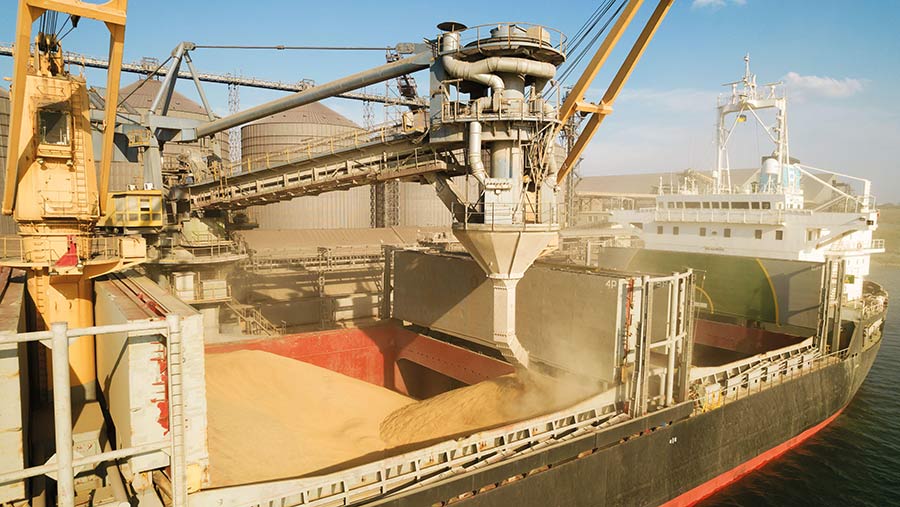UK in talks to break Russian blockade of Ukrainian grain
 © Larina Elena/Alamy Stock Photo
© Larina Elena/Alamy Stock Photo UK involvement in an export operation involving millions of tonnes of grain in storage in Odesa is increasingly likely after the World Food Programme’s warning of famine triggered by Russia’s obstruction of shipments from the Ukrainian port.
Ukraine and Russia combined export one-third of the world’s wheat and barley supplies and half its sunflower oil.
In April, exports of grain from Ukraine totalled 970 kilotonnes, three times more than for March, but European Council president Charles Michel said grain exports from Odesa port have since been blocked by Russian forces.
See also: EU border delays stymie Ukrainian attempts to move grain
On 2 May, Ukraine closed four seaports until the country “regains control over them”.
Millions of tonnes of grain are now sitting in silos at ports and, with the harvest set to get under way in less than six weeks, there will be no storage availability for the new-season grain unless exports resume.
Organisations including the United Nations fear the situation could trigger a major food crisis affecting Europe, Asia and Africa.
Mr Michel tweeted: “This badly needed food is stranded because of the Russian war and blockade of Black Sea ports, causing dramatic consequences for vulnerable countries.”
In the port of #Odesa with @Denys_Shmyhal, I saw silos full of grain, wheat and corn ready for export.
This badly needed food is stranded because of the Russian war and blockade of Black sea ports. Causing dramatic consequences for vulnerable countries. We need a global response. pic.twitter.com/k8dz03d2Cj— Charles Michel (@eucopresident) May 9, 2022
The crisis is a priority for governments around the world, including the UK, with a plan under way to establish a safe sea corridor from Odesa through the Bosphorus Strait to Turkey.
Foreign secretary Liz Truss has discussed the corridor with the Lithuanian foreign minister Gabrielius Landsbergis. She told The Times the UK is “working on an urgent solution to get the grain out of Ukraine”.
The coalition could include some Nato countries and other countries reliant on the grain, including Egypt, which is badly affected by the wheat shortage.
Mine clearance
The operation would require clearing mines from the harbour and the provision of longer-range weapons to Ukraine as a defence against Russian attack.
Ukrainian president Volodymyr Zelensky said he was in talks with allies, including Britain, the EU and US.
“We need to agree on a safe corridor. Russia will not be able to stand against the leading countries of the world. We are talking to the Baltics about using their seaports,” he said.
While the current focus is on getting grain out of Ukraine, there is also growing concerns about the planting of the 2023 crop.
Independent agronomist Mike Lee, of Green Square Agro Consulting, suggested that if Ukrainian farmers continue to plant beyond the usual planting window they could get close to pre-war hectares.
But, if the territories are occupied by Russian forces, planting could not be done, as this would be deemed as collaboration, escalating the food crisis further.
